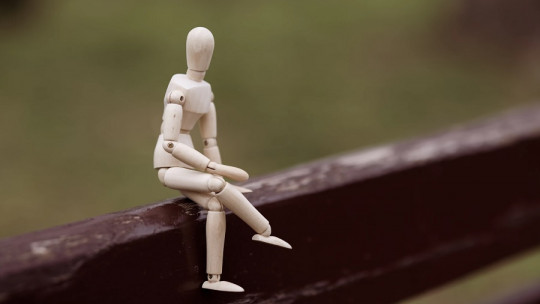The experience of loneliness weighs like a burden for many people, especially the elderly, as it causes a feeling of abandonment and lack of emotional support. Those who live alone, especially if it is not by their own choice, are more likely to suffer from a series of mental disorders or see those they already suffer from increase.
However, with a little awareness and personal effort Loneliness can be transformed into a pleasant experience of personal development and self-knowledge
The relationship between loneliness and the feeling of helplessness
As social beings, as human beings, our natural tendency is not to be alone. The fact of needing continuous care and attention during our first years of life constitutes biological evidence of this natural tendency to socialize.
When we are alone, and that loneliness is not something voluntarily sought, the chances of suffering from depression increase , suicidal tendencies are greater, and it has even been scientifically proven that the incidence of suffering from some type of heart disease is higher than that of those who have direct social support. It seems, therefore, that loneliness should be something to avoid, and an aspect to be evaluated and solved by the various social and health services.
But the reality is different. The state, and the individual themselves, have limited resources, and society will not always be willing to provide us with the company we need, or that we think we need.
This can cause a strong feeling of helplessness, which can make us conjecture about future threats derived, for example, from suffering an accident and there being no one to help us at that moment. This distressing experience is the seed of anxiety problems which feed on the fear of possible future disasters.
Perceived social support
Various studies suggest that the feeling of loneliness that we have described is attenuated with social support, but not with real and objective social support, but with perceived social support That is to say, it does not matter whether one has a social network of help or not, what matters is that one believes that one has it and that there will be someone to whom one can turn in case of need.
For example, if I have an elderly neighbor who lives alone, it is not necessary for me to go every day to help him or chat with him, but just to let him know that I am there for whatever he needs. Having my phone number and knowing that you can call me for my help may be enough to increase perceived social help. And this, only this, can mitigate your feeling of helplessness.
But what if I’m the one who lives alone? How can I increase my perception of social support? It must be taken into account that Not everywhere there are people willing to help They may not be my family or my closest friends (who may not be as friends as I think), but you can turn to associations created for this purpose, or to neighbors who seem more cordial to me to request a way of help at a time of need. need.

Of course, this often requires appeasing personal pride, and have the humility necessary to create the personal disposition to request support And this is where the process of personal development and self-realization begins, learning to recognize that, like other human beings, I also need or will need help at some point.
The ghosts of loneliness
In solitude one faces one’s own thoughts We can resort to television, radio or the Internet, but the lack of a direct relationship with someone ends up confronting us with ourselves. This involves becoming aware of our most recurring thoughts, our fears and uncertainties, and also our frustrated desires.
Often, it can constitute an avalanche of uncomfortable memories that transform a moment of calm and tranquility into a nervous experience of unease. And all of this is within us, and only we, with or without help, can transform it into a more pleasant personal experience.
Those who are not able to be comfortable in solitude do not have a good social adjustment either Personal insecurities usually trigger conflicts with other people who are the ones who, normally, show these insecurities through their behavior. And it is in solitude where we can become aware of all this, and ensure that it stops being an element that makes our loneliness an anguish, and our relationships something that negatively conditions our sociability.
Transformative loneliness and personal development
In almost all cultures there have been, and exist, rites of personal transformation that involve moments of loneliness and isolation In religions, for example, silence and closure have been encouraged as a way of experiencing divinity and transcending consciousness towards a state of greater harmony with the spiritual.
Doctrines as diverse as Christianity and Buddhism propose moments of isolation to improve the union of the human being with creation, with nature or with the universe. And this experience involves a kind of “shock therapy” in which you learn to feel “part of the whole”, previously going through an experience in which “you isolate yourself from everything”.
Although our loneliness is not voluntary, but a result of our life situation, We can turn it into a transformative experience that helps us feel in harmony with the world in which we live It is not an easy challenge, much less challenging, for most people. In fact, it is a proposal that in psychological therapy not everyone accepts willingly, but every psychologist, in one way or another, at some point suggests to his clients to be alone to become aware of those aspects of their way of being that are uncomfortable. or that condition their social relationships.
Conclusion
In short, the experience of loneliness can fluctuate from the most distressing helplessness to the most revitalizing tool of self-knowledge, even becoming a mystical experience in which one can find one’s place in the world, give meaning to one’s life and become more and more in what he really wants to be, thus ceasing to be a mere spectator of a society in which he does not feel comfortable.









